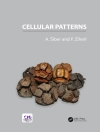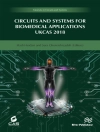This book is the first ever to offer a contemporary collection of different perspectives on person-centredness in international doctoral nursing research. The research in the book is based on the ideas and values of personhood and person-centeredness, which have been used and can be seen to guide research approaches, inform research designs and theorize research findings. Further, a specific framework for person-centred nursing is embedded throughout the research studies presented in the text. The Person-centred Nursing Framework (PCNF) developed by Brendan Mc Cormack and Tanya Mc Cance in 2010, is recognized as a nursing theory and this book further develops it as a basis for research and for advancing person-centredness in nursing. The framework informs all stages of the research process, from design through to dissemination.The book is structured into a number of highly engaging chapters written by doctoral candidates, and recently graduated candidates. The opening and closing chapters, written by the editors, place the subsequent chapters in a global context of person-centredness and nursing. The potential for person-centred nursing research to be a global movement is recognized and debated. The subsequent chapters lead readers through philosophical ideas, methodologies and methods whilst also offering reflective and honest insights into learning how to become a person-centred researcher.This field is growing and developing but yet there is no specific book available. As a result, researchers spend considerable time and effort translating existing research methodologies into person-centred perspectives. This book fills this gap and acts as a key resource for future nurse researchers.The text is intended for, and benefits nursing doctoral candidates, masters candidates and academic staff who teach and supervise research candidates; it may also appeal to other graduate learners. The book has international contributions which makes it appealing internationally.
Inhaltsverzeichnis
Introduction.- Chapter 1. Person-centred Nursing Research Principles.- Chapter 2. The Person-centred Nursing Framework and Nursing Research.- Chapter 3. Coming to know Personhood: philosophical ‚dates‘.- Chapter 4. Overviews of person-centered research: selected specific research examples. - Chapter 5. Developing theoretical frameworks: integrating specific values and principles into research.- Chapter 6. Methodologies for Person-centred Nursing Research.- Chapter 7. Knowing how to act – person centred research methods.- Chapter 8. Knowing, Being and Becoming in person-centred research (action research chapter). - Chapter 9. Phenomenological and hermeneutic approaches.- Chapter 10. Experimentation and Quasi- experimentation in person-centred research.- Chapter 11. Multiple and mixed methods approaches.- Chapter 12. Person-centredness in education research.- Chapter 13. Adopting a person-centred approach in doctoral supervision.- Chapter 14. Summary chapter: facing the future with confidence
Über den Autor
Professor Jan Dewing has an international reputation for expertise in person-centred care, practice development and gerontological practice including care of people living with dementia. She is The Sue Pembrey Chair in Nursing and Director for The Centre for Person-centred Practice Research at QMU Edinburgh. She also holds a professorship at the The University of Marabor, Slovenia and The Centre for Care Research North West Norway University College. Jan is recognised as nurse leader nationally and internationally, in awards by The RCN Australia in 2011 and in 2015 as an ‘Inspirational Nursing Leader’ by the UK Nursing Times, and on Social Media, amongst others. A successful journal editor (International Journal of Practice Development) and author with more than 200 publications, she is heavily invested in working with early career researchers.
Professor Brendan Mc Cormack’s internationally recognised work in person-centred practice development and research; his writing and research work focuses on person-centred practice, gerontological nursing, and practice development and he serves on a number of editorial boards, policy committees, funding panels and development groups in these areas. He has a particular focus on the use of arts and creativity in healthcare research and development. Brendan has more than 600 published outputs, including 220 peer-reviewed publications in international journals and 10 books. He is the ‘Editor Emeritus’ of the “International Journal of Older People Nursing”. In 2014 he was made a Fellow of the Royal College of Nursing, awarded the ‘International Nurse Researcher Hall of Fame’ by Sigma Theta Tau International and listed in the Thomson Reuters 3000 most influential researchers globally. He is currently in the top 100 ‘most cited’ nurse researchers globally. In 2015 he was recognized as an ‘Inspirational Nursing Leader’ by Nursing Times (UK nursing magazine), in 2016 made a Fellow of the Royal College of Surgeons in Ireland and a Fellowship of The American Academy of Nursing in 2019.
Professor Tanya Mc Cance has an international reputation in the development of person-centred practice through the use of participatory research approaches, such as practice development and action research. She has held several joint posts between higher education institutions and health and social care providers demonstrating her commitment to the integration of practice, education, and research. She leads a programme of research that is underpinned by the Person-centred Practice Framework, which she has developed with Professor Brendan Mc Cormack.Her most recent work focuses on the identification of a relevant and appropriate set of key performance indicators for nursing and midwifery that are indicative of person-centred care and the development of methods that will demonstration the unique contribution of nursing to the patient experience. She has been recognised for her research contribution by inclusion in the Nursing Times Inspirational Nurse Leaders List (September 2015), was awarded the Nurse of the Year 2017 Outstanding Achievement Award, and was listed as one of 70 influential nurses and midwives in 70 years of the NHS.












